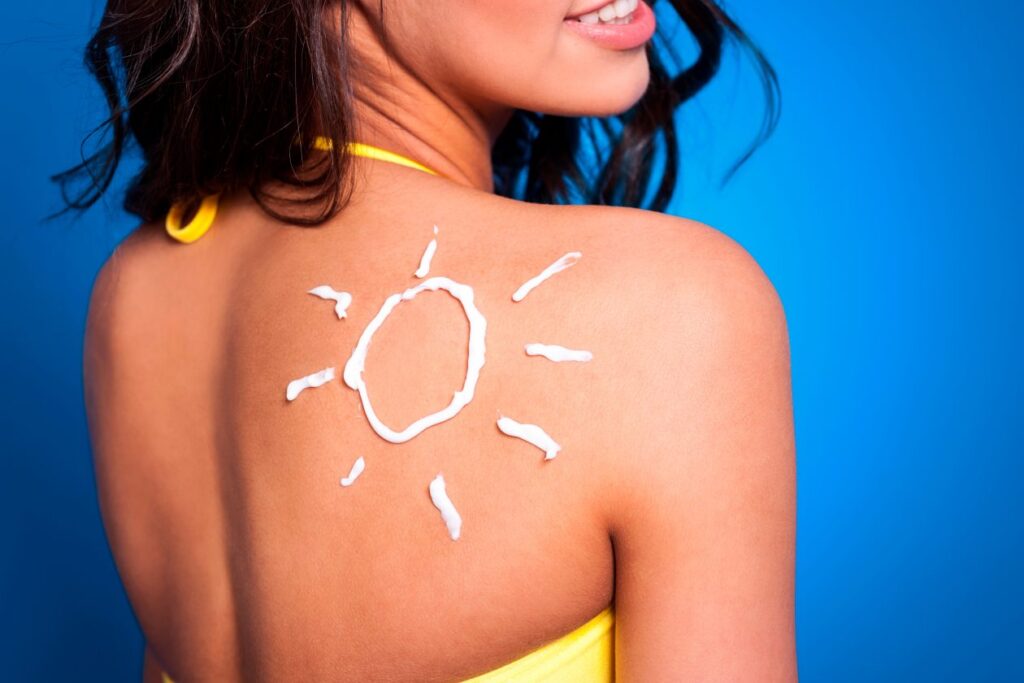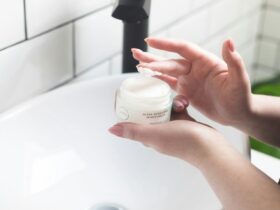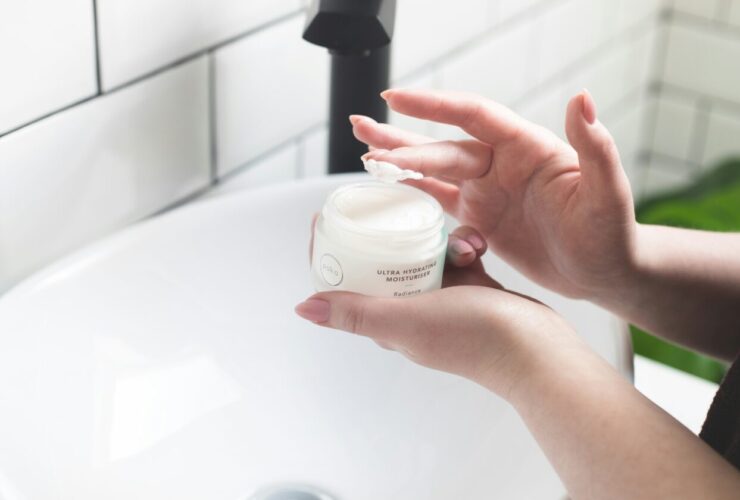Introduction
Our skincare routines are essential to achieving perfect skin. Our everyday routines can either help or hurt our skin from waking up until we hit the pillow. Bad skincare habits will hurt our skin. The first step to having healthy, glowing skin is realizing the effects of these habits. Some behaviors may unintentionally undermine our efforts and result in various skin problems and worries, but other habits can help us achieve a radiant complexion.
Setting out on the path to perfect skin frequently requires stumbling over a maze of typical skincare errors. We could find that, even with the best intentions, we succumb to unhealthy routines that worsen rather than improve the condition of our skin. Irritation, pimples, and early skin aging can arise from these mistakes, ranging from over-exfoliating to skipping sunscreen. By illuminating these typical traps, we can equip ourselves with the knowledge necessary to make wise decisions and develop skincare practices that nourish and shield our skin.
Not all skincare routines are equal when you delve deeper into the subject. Certain behaviors can have detrimental long-term impacts on our skin, even if they initially appear harmless. We can determine the real cause of these lousy skincare practices’ negative effects and set ourselves up for happier, healthier skin by critically analyzing them. Come along as we explore the mysteries of skincare and discover effective ways to break negative habits forever.
Bad Skincare Habits Explored
A.Unveiling the Impact of Poor Bedding Choices
The type of material used for your mattress can greatly impact skincare. Poor-quality materials can cause skin irritation and even breakouts. Examples of these materials are gritty or scratchy sheets and pillowcases. Choosing delicate materials such as soft cotton and natural aloe fibers will help reduce these problems and encourage better skin and more peaceful sleep.
Beyond just the material, the state of cleanliness of your mattress is also very important for skincare. Changing your pillowcases regularly (every four to five days) can help stop bacteria and pollutants from getting on your face and lower your chance of irritation and breakouts. Promote the general health of your skin and create a more hygienic sleeping environment by realizing the value of clean bedding.
B. Sleep Deprivation and Skin Health
Sleeping is crucial for keeping skin healthy because it enables the body to undergo important restorative procedures at night. These procedures include increased blood flow, decreased puffiness beneath the eyes, and collagen formation. You may encourage a more luminous complexion and assist your skin’s natural regeneration by prioritizing sleep quality, aiming for 7-9 hours per night.
On the other hand, insufficient sleep can negatively impact skin health, resulting in a lifeless complexion, dark bags beneath the eyes, and heightened inflammation. Prolonged sleep deprivation throws off the body’s regular cycles, making it more difficult for the skin to heal and rejuvenate. Understanding the significance of getting enough sleep will enable you to proactively prioritize relaxation and renewal for healthier and brighter skin.
C. Exfoliation Extremes: Striking a Balance for Radiant Skin
Any skincare regimen should include exfoliation, but finding the ideal balance is crucial. Excessive rubbing and harsh scrubs can cause skin damage, resulting in pigmentation, black patches, and even scars. To get a smoother, more radiant complexion, use gentle exfoliators and appropriate cleansers for your skin type. These products can assist in eliminating dead skin cells without irritating your skin.
Although excessive exfoliating can upset the skin’s natural equilibrium and remove important oils, it can also cause dryness and irritation. It’s critical to pay attention to your skin’s demands and refrain from over-exfoliating. Observe any redness or irritation, and modify your exfoliating regimen if necessary. Exfoliating your skin in a balanced way will help you keep it bright and healthy without doing damage.
D. Sunscreen: The Unsung Hero of Skincare
Sunscreen provides essential protection against dangerous UV radiation, making it a necessary part of any beauty program. Using broad-spectrum sunscreen with an SPF of 30 or higher daily helps prevent sunburn, delays the onset of aging, and lowers the chance of developing skin cancer. Rain or shine, make applying sunscreen a routine to protect your skin and maintain its youthful appearance.
Selecting the best sunscreen solution for your skin type and requirements is crucial, as there are several to pick from. Seek for UVA and UVB protection in broad-spectrum compositions, considering elements like water resistance and application technique. You may enjoy the sun responsibly and prevent skin damage by prioritizing sun safety and applying sunscreen to your daily routine.
Transforming Bad Habits into Healthy Rituals

A.Tips for Selecting Skin-Friendly Bedding
Selecting the correct bedding has an immediate impact on the health of your skin and extends beyond appearances. The fabric’s texture and thread count are important factors in reducing skin discomfort. Choose softer materials, such as cotton or bamboo, and bedding with a greater thread count to reduce friction and pain and provide a calmer, more restful environment for your skin.
Your pillowcase may contain bacteria, oil, and debris that causes skin irritation and breakouts. Changing your pillowcase daily might help you achieve a much healthier complexion. To reduce possible allergens, think about choosing hypoallergenic pillowcases and washing them in detergent without smell. Making your mattress a high priority will help foster a climate promoting clearer, healthier skin.
B.Techniques for Improving Sleep Quality
Makeover your bedroom to create a peaceful haven that promotes sound sleep. Ensure the space is cool, quiet, and dark, and the mattress and pillows are comfy and support healthy spinal alignment. Create a calming nighttime ritual, like reading or light stretching, to let your body know it’s time to unwind. Increase your chances of getting deep, restorative sleep every night by prioritizing sleep hygiene.
Good sleep hygiene includes:
- Maintaining regular sleep and wake times.
- Minimizing screen time before bed.
- Avoiding coffee and large meals just before bed.
Furthermore, engaging in relaxation exercises like deep breathing or meditation can assist in calming the mind and getting the body ready for sleep. You can enhance general skin health and sleep quality by forming healthy sleeping habits.
C. How to Exfoliate Properly
Less is frequently more when it comes to exfoliating. To encourage cell turnover without irritating skin, choose products that contain mild exfoliating chemicals such as beta hydroxy acids (BHAs) or alpha hydroxy acids (AHAs). Steer clear of rough physical scrubs and excessive use of exfoliating equipment since these might weaken the skin’s protective layer and cause irritation. You can attain smoother, more vibrant skin without sacrificing the integrity of your skin by making gentle exfoliation a priority.
It would help to strike the correct balance in your exfoliation regimen to prevent over-exfoliation. Determine what your skin needs from an exfoliation schedule and modify it accordingly. Exfoliating 1-3 times a week is enough for most skin types to eliminate dead skin cells and reveal a more radiant complexion. On the other hand, cut down on exfoliating and concentrate on moisturizing and nourishing the skin if you see any indications of irritation or redness.
D. Sunscreen Savvy

Using sunscreen is essential in shielding your skin from damaging UV radiation. When choosing a sunscreen formulation, consider your skin type and choose a broad-spectrum product with an SPF of 30 or greater. Oil-free or gel-based sunscreens are best for oily or acne-prone skin types; moisturizing or mineral-based sunscreens are better for dry or sensitive skin types. You can ensure your skin is consistently protected from UV damage by choosing a sunscreen that works for it.
At least fifteen minutes before exposure to the sun, liberally apply sunscreen to all exposed skin areas, including the hands, neck, and face. To ensure proper protection throughout the day, reapply sunscreen every two hours or immediately after swimming or sweating. Use moisturizers or makeup products with SPF integrated into your everyday skincare routine to get the benefits of sunscreen. You can prevent skin cancer and protect your skin from premature aging by applying sunscreen as a habit.
FAQ Section
Q: What habit is not healthy for the skin?
A: One of the most damaging habits for the skin is overexfoliating. While exfoliation is essential for removing dead skin cells and promoting cell turnover, excessive exfoliation can lead to irritation, inflammation, and damage to the skin’s protective barrier. Using exfoliating products sparingly and choosing gentle formulas suited to your skin type is important.
Q: What habits are good for the skin?
A: Good skincare habits include cleansing the skin regularly to remove dirt, oil, and impurities, moisturizing to keep the skin hydrated and supple, and wearing sunscreen daily to protect against harmful UV rays. Additionally, incorporating antioxidant-rich foods into your diet, staying hydrated, and getting enough sleep can contribute to healthy, glowing skin.
Q: What affects bad skin?
A: Several factors can contribute to bad skin, including genetics, hormonal imbalances, environmental pollutants, stress, poor diet, lack of sleep, and inadequate skincare routines. Additionally, using harsh skincare products, overexposure to the sun, and smoking can exacerbate skin issues and contribute to premature aging.
Q: What is unhealthy skin?
A: Unhealthy skin may exhibit various signs and symptoms, including dryness, flakiness, redness, inflammation, acne breakouts, excessive oiliness, uneven texture, and premature aging. Unhealthy skin lacks vitality, radiance, and resilience and may be more prone to irritation, sensitivity, and damage from external aggressors.
Q: What can cause bad face skin?
A: Bad face skin can be caused by a combination of factors, including poor skincare habits, environmental stressors, hormonal fluctuations, dietary choices, and genetic predispositions. Using harsh skincare products, over-exfoliating, neglecting sunscreen, and leading a sedentary lifestyle can all contribute to the deterioration of facial skin health.
Q: Is clear skin attractive?
A: Clear skin is often perceived as attractive because it reflects overall health and vitality. However, beauty is subjective, and individuals may have different preferences when it comes to skin appearance. It’s essential to prioritize healthy skincare habits and embrace skin imperfections as part of one’s unique beauty.
Q: What is the most harmful habit?
A: One of the most harmful habits for skin health is sun exposure without adequate protection. UV radiation from the sun can cause premature aging, skin cancer, sunburn, and other skin damage. Consistently skipping sunscreen or not applying enough can increase the risk of these adverse effects.
Q: Does lifestyle affect skin?
A: Yes, lifestyle factors such as diet, sleep quality, stress levels, exercise habits, and skincare routines can significantly impact skin health. Adopting a healthy lifestyle with proper nutrition, regular exercise, stress management, and consistent skincare practices can promote radiant, youthful-looking skin.
Q: Is skincare a good habit?
A: Skincare is a beneficial habit that can help maintain and improve skin health. A well-rounded skincare routine tailored to individual skin concerns can address specific issues, protect against environmental damage, and promote overall skin wellness. Consistency and using suitable products are key to reaping the benefits of skincare.
Q: How can I keep my face skin healthy?
A: To keep your facial skin healthy, establish a daily skincare routine that includes cleansing, moisturizing, and applying sunscreen. Choose skincare products formulated for your skin type and concerns, avoid harsh ingredients, and incorporate gentle exfoliation and targeted treatments as needed. Additionally, prioritize a balanced diet, stay hydrated, get enough sleep, manage stress levels, and protect your skin from sun exposure.
Q: Which skincare products are unnecessary?
A: While skincare needs vary depending on skin types and concerns, some products may be unnecessary or harmful if not suitable for your skin. These may include heavily fragranced products, overly harsh cleansers, aggressive exfoliants, and unnecessary additives. Choosing skincare products based on your skin’s specific needs and avoiding overloading your routine with unnecessary or potentially irritating ingredients is essential.
Q: What is the healthiest habit to have?
A: One of the healthiest habits for skin and overall well-being is maintaining a balanced lifestyle that prioritizes self-care, including proper skincare, nutrition, hydration, exercise, sleep, and stress management. Consistency in these habits can support optimal skin health and contribute to a healthier, more vibrant complexion.
Q: Skincare habits to leave behind
A: Some skincare habits of leaving behind include sleeping with makeup on, over-exfoliating, neglecting sunscreen, using harsh products, picking at blemishes, and following skincare trends without considering individual skin needs. Instead, focus on adopting a gentle, consistent skincare routine tailored to your skin type and concerns for optimal results.
Q: Worst things for your skin
A: The worst things for your skin include sun exposure without protection, smoking, poor nutrition, lack of sleep, stress, harsh skincare products, overexfoliation, and neglecting skincare routines. These factors can contribute to premature aging, acne breakouts, sensitivity, and other skin issues, compromising overall health and appearance.
Conclusion
It takes more than just following a skincare regimen to get glowing skin—you also need to develop healthy behaviors that enhance general wellbeing. People can create long-lasting beauty from the inside by identifying and correcting their negative skincare habits. Using a holistic approach to skincare means feeding the mind, body, and spirit, all of which greatly impact the skin. Choosing skin-friendly bedding, prioritizing restful sleep, and learning the art of gentle exfoliation are all steps toward a more radiant complexion and more self-assurance.
Changing unhelpful skincare routines into empowering ones requires self-awareness and empowerment. It calls for commitment, tolerance, and a readiness to prioritize self-care. People who adopt healthy skincare habits and make thoughtful decisions can see life-changing effects beyond physical attractiveness. Adopting healthy behaviors has innumerable benefits, ranging from rejuvenated confidence and wellbeing to clearer, more vibrant skin. People set out on a path to radiant skin and a more colorful, meaningful existence with every step they take.
Was this helpful?

Joseph Emb, RDN
Founder of StyleVitally.com | Registered Dietitian & Wellness Advocate
What I Cover:
I’m passionate about connecting nutrition science and everyday wellness to help people live healthier, more vibrant lives. I write about evidence-based nutrition, mindful eating, sustainable lifestyles, and holistic well-being at StyleVitally.com.
My Background:
The University of Texas in Austin, where I earned my Dietetics diploma, laid the groundwork for my nutrition and health career. My training and hands-on experience taught me the science and art of using nutrition to enhance health and well-being.
Professional Journey:
I’m an RDN with lots of experience. I’ve helped people seeking tailored nutritional recommendations in clinical settings and community outreach programs. My constant learning and professional development ensure that my recommendations are always based on the latest evidence.
Ethical Commitment:
My practice prioritizes integrity. My content is transparent and objective, following the most significant ethical standards. I can give my audience unbiased advice because I’m not affiliated with food businesses or industry associations. I want to help people make informed health decisions that match their values and ambitions.
Join Me on the Wellness Journey:
Join me on the path to vitality and well-being, whether facing nutritional issues, seeking sustainable lifestyle changes, or simply wanting a better, happier you. We’ll discover how diet, mindfulness, and holistic well-being can maximize your potential.










Leave a Reply
View Comments